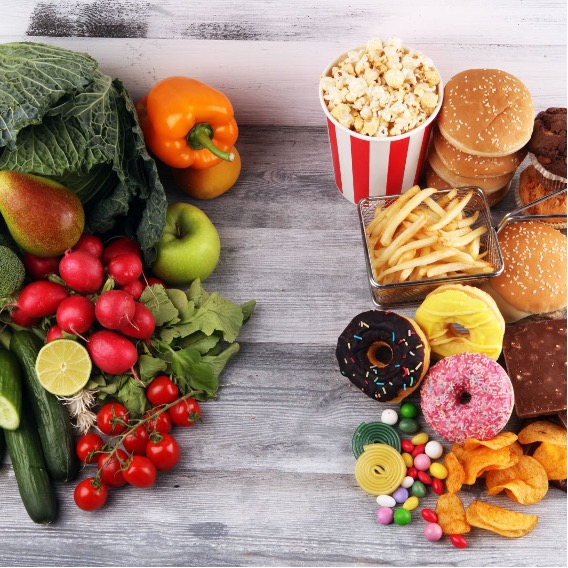High cholesterol can be genetic or can occur when you eat too many fatty foods, are overweight, or don’t exercise enough.
Learning which foods to eat and avoid can help you lower your cholesterol and improve your quality of life.
What Is Cholesterol?
Cholesterol is a fatty substance present in the blood. The liver helps make certain cholesterols, which are essential to your health. For example, your body makes cholesterol to form chemical messengers called hormones.
You can also find cholesterol in some foods, including meat, seafood, poultry, eggs, and dairy.
What Are the Main Types of Cholesterol?
When you get your cholesterol checked, the test will measure HDL, LDL, Triglycerides, and Total Cholesterol levels.
Here is what they are and how they work:
- Low-density lipoprotein (LDL) – This type of cholesterol is what we call a lipoprotein. It is a cholesterol and protein molecule that carries fat to your body’s cells for vital functions. Having too much can lead to serious health problems. This is because having too much LDL in your bloodstream can cause it to aggregate in the walls of your arteries.
- High-density lipoproteins (HDL) – This is another type of lipoprotein that transports excess fats from the blood back to the liver, where it can be broken down and removed from the body. This is why HDL cholesterols are helpful in lowering cholesterol levels.
- Triglycerides – This is a type of fat found in your blood. High levels of triglycerides in combination with a high LDL or low HDL can contribute to heart disease.
- Total cholesterol – This is the total amount of HDL and LDL cholesterol in your blood.
To learn how to interpret these lab levels on your blood work check out this article.
Foods to Avoid if You Have High Cholesterol
The best way to lower your cholesterol is to reduce your intake of saturated and trans fat. This means you should limit your intake of the following foods:
- Red meat: Beef, Lamb, Pork, etc.
- Processed meat: Ham, Bacon, Salami, Sausages, Chicken Nuggets, etc.
- Dairy products made with whole milk: Heavy cream, Butter, Cream Cheese, Full-fat Cheese, etc.
- Fried food: Egg Rolls, Falafel, Potato Chips, French Fries, etc.
Foods That Can Lower Your Cholesterol
Fighting high cholesterol is not only about cutting foods from your diet but also adding foods that help lower your cholesterol and/or triglyceride levels. Examples of such foods are:
- Oats: Oatmeal contains soluble fiber. Soluble fiber helps reduce cholesterol absorption into your bloodstream which can lower LDL cholesterol levels.
- Whole grains: Barley and other whole grains contain soluble fiber and thus, can also help lower LDL cholesterol.
- Nuts, almonds, and peanuts: These foods contain healthier unsaturated fats and Omega-3 fats that can help lower cholesterol.
- Beans: These foods are rich in soluble fiber and thus, can also help lower LDL cholesterol.
- Vegetable oils: Using canola and sunflower instead of high-cholesterol-containing butter and lard when cooking can help lower LDL cholesterol.
- Extra Virgin Olive Oil: Contain polyphenols that can help lower LDL, increase HDL, and lower triglycerides
- Fatty fish: Fish is rich in ômega-3 fatty acids, which help reduce triglycerides and protect against heart diseases.
- Fresh fruits: Apples, grapes, strawberries, and citrus fruits, which are rich in pectin, a soluble fiber that lowers LDL.
A heart-friendly low cholesterol diet should focus on fiber-rich foods, fresh vegetables and fruits, fish, whole grains, nuts, and vegetable oils. At the same time, you should consume less fried foods, processed foods, dairy products, red meats, and fast foods. All of these will help you lower your cholesterol which will also help you avoid such adverse outcomes as heart disease and stroke.
If you are trying to lower your cholesterol or would like to find ways to avoid getting high cholesterol, feel free to give our office a call to find out how we can help.
Dr. Sergio Guiteau is a physician who is board certified in Family Practice and Sports Medicine with added certifications in Aesthetic Medicine. He specializes in Preventive Medicine, Sports Medicine, and Anti-Aging Medicine and blogs on Advancedrejuv.com/blog

